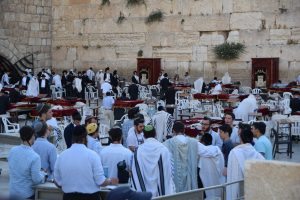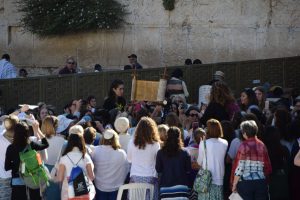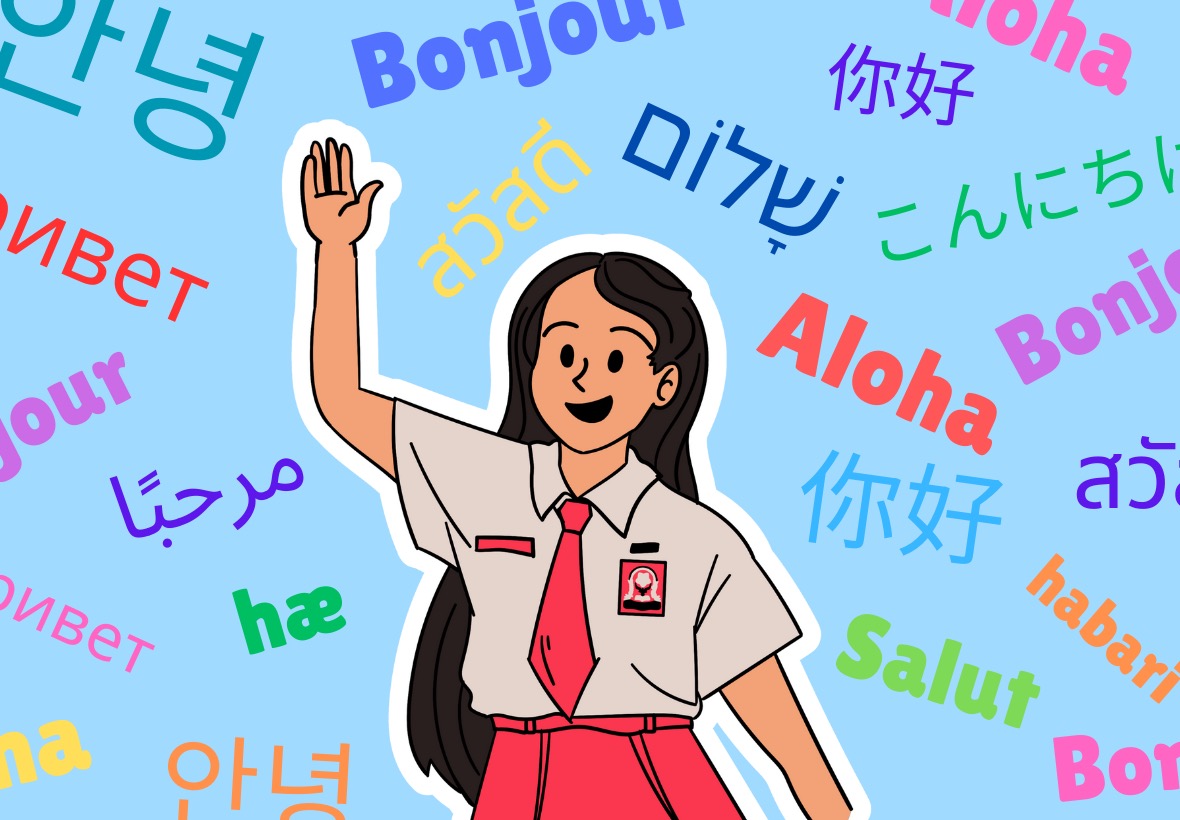Hatikvah: the hope. The Israeli national anthem, which was created to remind the world that the hope of a Jewish homeland has become a thriving reality, also represents the hopes of many women to have the chance to pray equally at the holiest Jewish site.
The Western Wall in Jerusalem has been the epicenter of Judaism for the last 3,000 years. With the Wall strictly controlled by the ultra-Orthodox Rabbi Shmuel Rabinovitch, a barrier separates between men and women. The men have almost twice the amount of space as the women and also have access to hundreds of Torahs, the Jewish holy book, which the women are not permitted to use.
Prior to my journey to Israel with my family last June, I found out about Women of the Wall, an organization that promotes women’s rights to equal prayer at the Western Wall and equal rights in Judaism in general. Once a month, on a holiday called Rosh Chodesh, they hold a service at the Wall to protest the gender discrimination. One of these services corresponded with my visit.
On June 18, from 7 to 9 a.m., the Women of the Wall prayed, sang, danced, and celebrated their love and commitment to Judaism. I was lucky enough to be able to participate in that life-changing protest.
While we swayed to songs of love and kindness, I was shocked to hear yelling, booing and whistling from surrounding men and women who were trying to drown out our prayers. Some men even attempted to “out-pray” us, chanting extra-loud and banging on drums. The Women of the Wall—made up of Israeli natives, Jewish immigrants and visitors from all over the world—ignored the ugly screeches of hate by only increasing the energy exuded in their prayer.

Shira Pruce, the Director of Public Relations for Women of the Wall, emphasizes that the organization has every right to be there and practice Judaism.
“The ultra-Orthodox like to throw around the word modesty,” Pruce said. “These women would claim to be modest because their hair is covered and their shoulders are covered and their elbows are covered and their knees are covered, but I believe that modesty is in your behavior. The Jewish value of modesty is about treating all of God’s creations with respect and I think that they disrespect us, themselves, and they disrespect the holy site when they curse and yell and boo and threaten us.”
Every traditionally complete Jewish service features a Torah reading. Rabbi Rabinovitch’s rules forbid anyone from bringing a Torah into the Western Wall complex because there are already hundreds available for “public use”—but only if men are considered the public. So, the Women of the Wall are stuck. According to the rules, they can’t use a Torah from the Western Wall and they can’t bring their own in.
When I attended, the Women of the Wall were able to successfully sneak a Torah in and complete four bat mitzvahs for girls and women. Shouts of “mazel tov” congratulated both the bat mitzvahs and the Women of the Wall themselves for successfully getting in a Torah. In the 27 years Women of the Wall have been pursuing justice, they have only succeeded in bringing a Torah six times. This low percentage, considering they’ve conducted around 324 services, speaks to the historical significance of that moment.
That being said, the Women of the Wall have made progress over the years. In April 2013, after five women were arrested at a Women of the Wall service, the Israeli courts ruled that women have full legal rights to pray at the Western Wall—wearing, reading, and praying to best honor their traditions. Now, women can wear tallit or tefillin, sacred religious items of clothing, to the Wall without fear of police repercussion.
However, it would be naive to look at one small step forward as a fix. Women still can’t read the Torah at the wall. They can’t pray with men. They can’t even dress as they see fit without fear of harassment or blockage from entrance.

Michele Sumka and Linda Yitzchak, members of Washington Friends of the Women of the Wall, a D.C.-based volunteer group that draws attention to this issue locally, explained that the segregation at the Western Wall in Jerusalem speaks to broader problems.
“This is an issue of civil rights, women’s rights, and religious rights,” said Sumka. Yitzchak added that as a liberal American Jewish woman, the Western Wall became more meaningful for her when she was able to pray with Women of the Wall according to her beliefs.
I had an amazing experience with Women of the Wall in spite of the hate directed towards us. Let’s work to create a world, at Whitman, in Bethesda, in the United States and internationally, where every person can express themselves as themselves, whomever that may be. Speak out about the injustices you see and don’t be afraid to fight for rightful change; while the fight might take a while—though hopefully not 27 years—it will be worth it.
The Women of the Wall have hope, hope for equal rights at the Western Wall. Let us have hope for the power of positive change in the world.









